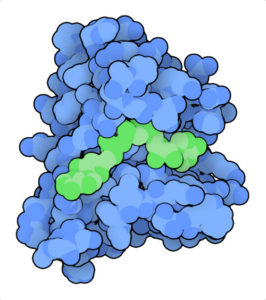
The RNA molecular biology of the Fragile Histidine Triad (FHIT) tumor suppressor
The third study arc of the Kiss RNA lab focuses on how the FHIT tumor suppressor modulates the translation of selected mRNAs in cancer. Dr. Kiss’s postdoctoral work has shown that expression of the FHIT protein results in translational changes for several known cancer-linked mRNAs. This result was first observed with Thymidine Kinase 1 (TK1) mRNA where the regulation was traced to a highly structured 5’ translation leader (also called the untranslated region or UTR) sequence. Further studies followed and showed that FHIT-mediated translational regulation is often dependent upon 5’ translation leader sequences at the beginnings of affected mRNAs.
We are currently building new tools to better study FHIT-mediated translational regulation in cancer. For the lab’s future FHIT research, we plan to build upon Dr. Kiss’s published works by expanding ribosome profiling into FHIT negative patient tumor samples and by developing better cell lines where FHIT (or mutant FHIT) expression is tightly regulated.
Current Support:
NIH – NIGMS: R35GM137819 (8/2020 – 6/2025; PI: Kiss, DL)
Houston Methodist Research Institute Career Cornerstone Award – 2020 (1/2021 – 12/2025; PI: Kiss, DL)
molecule image from: Goodsell DS, Autin L, Olson AJ (2019) Illustrate: Software for Biomolecular Illustration. Structure (Epub ahead of print), doi: 10.1016/j.str.2019.08.011.
Last Updated: September, 2023

